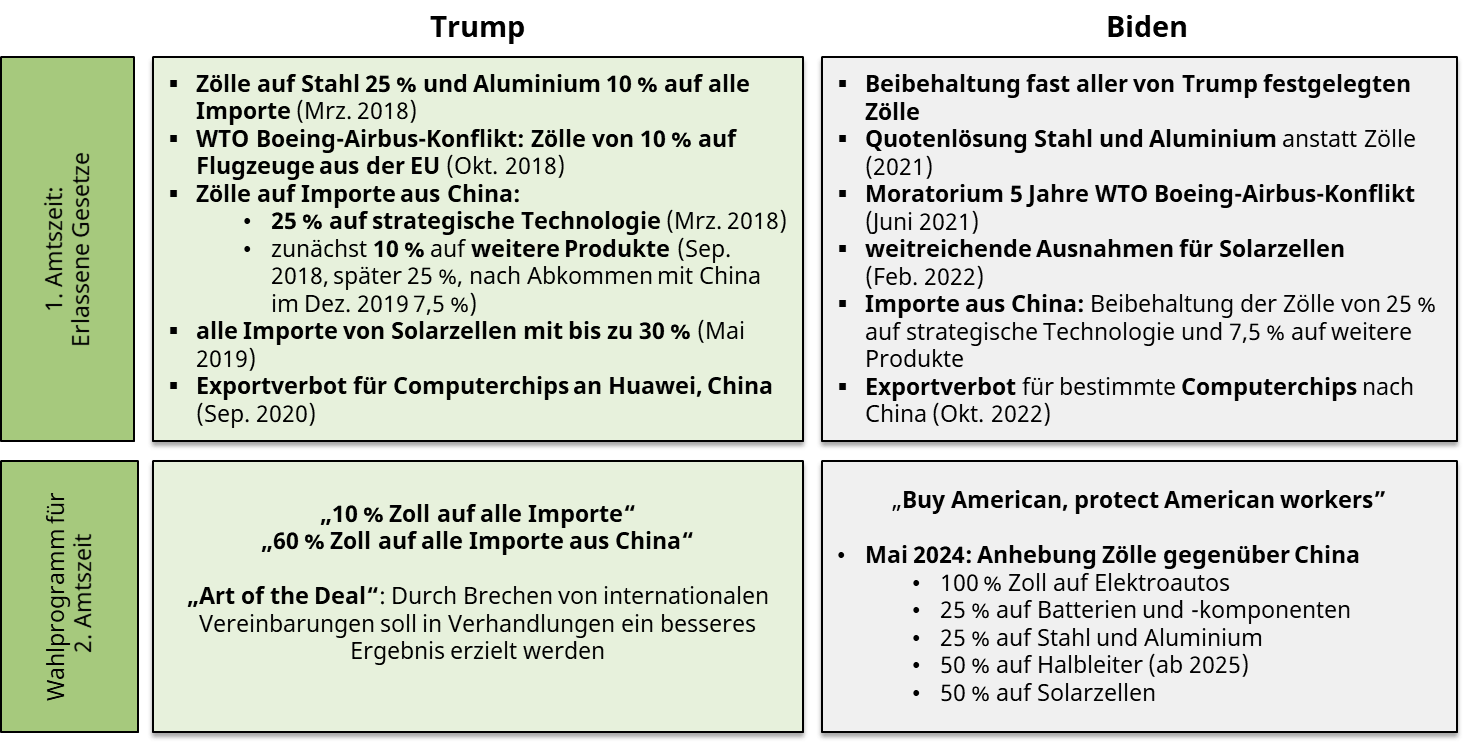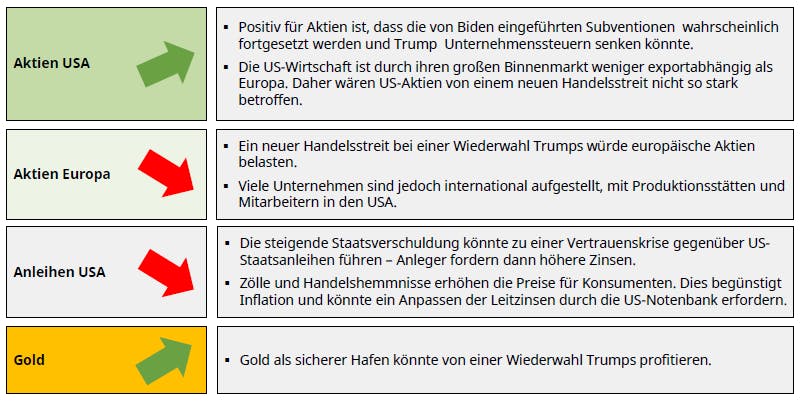US elections 2024: politically important, economically irrelevant?
Events in US politics have come thick and fast in recent days. First Donald Trump narrowly escapes an assassination attempt and a week later Joe Biden surprisingly announces his withdrawal from the 2024 presidential election. Regardless of these events, we have analyzed Donald Trump's economic policy during his first term in office and the Biden administration's economic policy in recent years in more detail and highlight possible implications for the capital markets.
By Carina Crosby
Jul 24, 2024

When it comes to economic policy, Democrats and Republicans have a lot in common.
Trade policy
Even if they differ greatly from each other politically, there are some similarities between the economic policies of the Democrats under Joe Biden and Donald Trump. In particular, there is a broad political consensus among Democrats and Republicans on the tough stance against China. The USA has been competing with China for years for economic, political and military supremacy. In the past, both Donald Trump and Joe Biden have relied heavily on protectionist economic policies in the form of tariffs and trade restrictions.
While Trump's election platform calls for 10% tariffs on all imports and 60% tariffs against China, Biden raised tariffs against China in May under the slogan "Buy American, protect American workers", including 25% on steel, aluminum and batteries, 50% on solar cells and 100% on electric cars. Some of these tariff increases are not due to come into force until 2025, in some cases 2026, when Joe Biden's first term of office comes to an end.
In our opinion, the policy of trade barriers against China with tariffs and export bans on strategic products will continue regardless of the outcome of the election (image in German only).

Subsidy policy
Subsidies are an important pillar of Biden's economic policy: The Inflation Reduction Act promotes renewable energies and electromobility in particular. The CHIPS Act promotes the semiconductor industry. In addition to strengthening the domestic economy and companies, the extensive subsidy programs are also intended to help the USA secure and further expand its dominance in the technology sector.
As a result, international companies have set up shop, with significant investments located in districts with Republican congressmen. Therefore, the subsidies are likely to continue in any election outcome, as both districts with current Republican and Democratic congressmen benefit from the investments and jobs.
What impact would Trump's re-election have on the stock markets?
As explained in detail, there are significant overlaps between Republicans and Democrats with regard to US economic policy. For these reasons, the outcome of the election is likely to be of little significance for the capital markets.
The following table shows the impact we expect on the capital markets (in German only).

© 2024 Reimann Investors